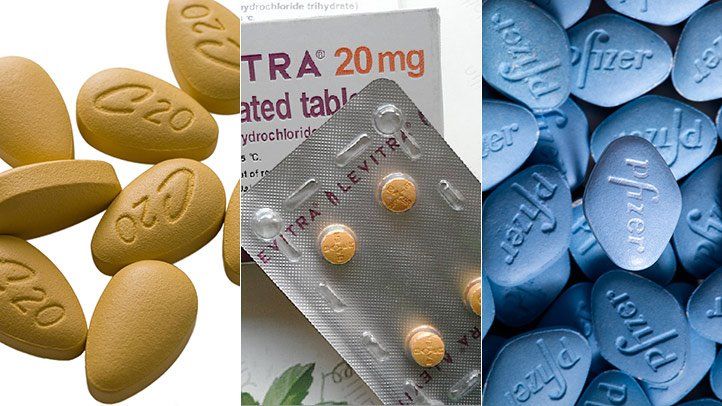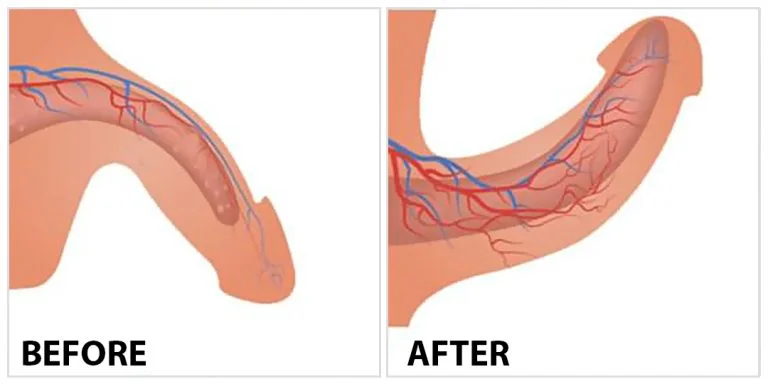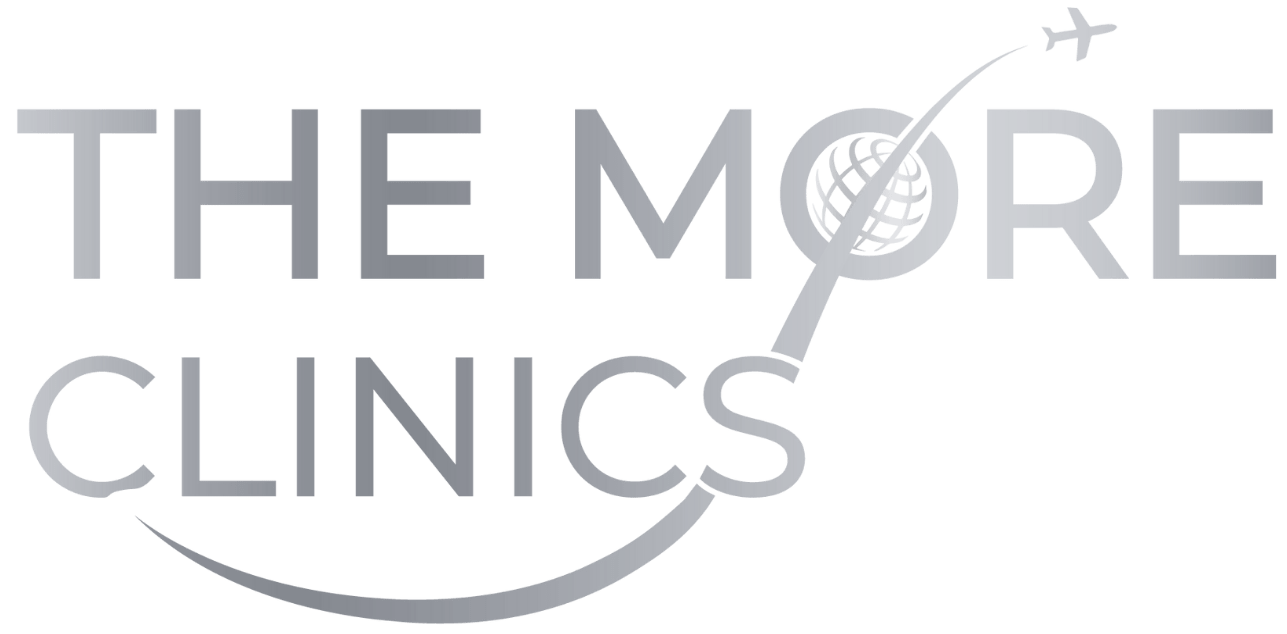Erectile Dysfunction
As a man, you want the best for your sexual health, and keeping it in check is an important part of staying healthy. Erectile dysfunction (ED) can affect men at any age, but sadly it’s a subject that isn’t often discussed openly due to embarrassment or fear. At its worst, ED can be a sign of serious underlying conditions such as diabetes or high blood pressure. In this blog post we’ll discuss what causes ED, how it might manifest and offer suggestions on ways to tackle the issue so you can live your best life with confidence!

Understanding Erectile Dysfunction: Symptoms, Causes, and Treatment Options
Erectile dysfunction (ED) is a medical condition that affects men of all ages. It can be a distressing and frustrating experience, but it is important to understand the symptoms, causes, and treatment options available to manage this condition effectively. ED refers to the inability to achieve or maintain an erection during sexual activity, and it can be caused by physical or psychological factors.
Erectile Dysfunction Symptoms
Erectile dysfunction symptoms are something that every man should be aware of, yet many feel too embarrassed or uncomfortable to discuss. This condition can have a significant impact on a man’s quality of life, causing stress, anxiety, and even depression. Recognizing the signs of ED early on is crucial in seeking proper treatment and finding a solution to this frustrating problem. Which can include:
- Difficulty getting an erection
- Trouble keeping an erection
- Reduced sexual desire
- Anxiety and stress related to sexual performance
- Inability to achieve an erection during sexual activity
- Soft erections that don’t sustain for the complete duration of sexual intercourse
- Decreased frequency of spontaneous erections.
Causes Behind ED
- Cardiovascular Conditions: ED can occur due to poor heart health as it affects blood flow to the penile region. Conditions like atherosclerosis or hypertension can limit blood flow.
- Hormonal Imbalances: Conditions like diabetes, thyroid disorders, hypogonadism, or adrenal gland disorders cause hormonal imbalances which can lead to ED.
- Neurological Disorders: Diseases like Parkinson’s, stroke, or multiple sclerosis can alter the brain’s communication with the reproductive system, causing ED.
- Psychological Issues: Mental health issues such as depression, anxiety, or stress can also cause ED. Psychogenic ED is caused by mental or emotional reasons.
- Lifestyle Factors: Unhealthy lifestyle choices like smoking, excessive alcohol intake, and illegal drug use can also lead to ED. Obesity, lack of exercise, and poor diet can also contribute.
- Medications: Certain medications for high blood pressure, heart disease, depression, or cancer can cause ED as a side effect.
- Injury or Surgery: Trauma to the pelvic area or spinal cord can damage nerves and blood vessels required for an erection. Surgeries on the prostate, bladder, or colon can also lead to ED.
- Age: As men age, the likelihood of developing ED increases due to natural changes in hormones and blood flow.
- Underlying Medical Conditions: Chronic conditions like kidney disease, liver disease, or sleep disorders can contribute to the development of ED.
- Smoking and Erectile Dysfunction: Smoking is a significant risk factor for ED as it damages blood vessels and restricts blood flow to the penis.
Some additional factors that can contribute to erectile dysfunction include excessive stress, relationship problems, and lack of communication with sexual partners. Stress can cause hormonal imbalances and negatively impact overall health, leading to ED. Relationship issues or poor communication with sexual partners can also lead to anxiety and performance anxiety, which can contribute to ED. It is essential to address these underlying factors in order to effectively treat and manage ED.
Effective Erectile Dysfunction Treatment Options
Erectile dysfunction can greatly affect a man’s quality of life. It’s a common condition that affects one in every five men over the age of 60. Fortunately, there are many treatment options available for those who suffer from this condition.
Erectile Dysfunction Pills
There are pills available that can enhance performance and restore confidence. These pills help increase blood flow to the penis, resulting in a firmer, longer-lasting erection. It’s important to note that these pills should only be taken under the guidance of a healthcare professional to ensure safety and effectiveness.
Erectile Dysfunction Medications
For individuals experiencing Erectile Dysfunction, medications can be a helpful solution in regaining their sexual health. There are several commonly prescribed Erectile Dysfunction Medications available, each with unique benefits and potential side effects.

How Physical Activity Can Improve Erectile Function
Physical activity doesn’t just strengthen muscles and improve overall health – it can also have a positive impact on erectile function. Exercise increases blood flow throughout the body, including to the penis, which can lead to stronger and longer-lasting erections. Additionally, physical activity releases endorphins which can decrease stress and anxiety, both of which can negatively affect sexual performance.
Exercise Techniques for Managing Erectile Dysfunction
As men age, the pelvic muscles that control the flow of urine and contribute to sexual arousal can weaken, leading to erectile dysfunction. However, there is a range of exercise techniques that can help strengthen the pelvic muscles, ultimately improving erectile function.
One such exercise is called Kegels, which involve tightening and contracting the muscles around the anus and urethra. Another option is to use resistance bands or weights to perform squats and lunges, which engage the pelvic floor muscles.
Alternative Treatment Approaches for Erectile Dysfunction
When it comes to erectile dysfunction, there are other treatment options available that can provide long-term relief. Two of these alternatives are the p-shot and eswt for ED, which both focus on improving blood flow to the penis. The p-shot involves injecting platelet-rich plasma (PRP) into the penis, which stimulates cell growth and blood vessel formation.

ESWT for ED stands for extracorporeal shockwave therapy and involves using shockwaves to improve blood flow to the penis. Another treatment option is PRP for ED, which involves injecting PRP into the penis to promote tissue regeneration. Another popular alternative is Stem Cell Treatment for ED, which involves injecting stem cells directly into the penis to promote tissue regeneration and improve erectile function.
Read About the Surgical Options for ED: Penile Implants or Vascular Surgery.
Seeking Professional Help
When faced with erectile dysfunction, it may be difficult to determine the right time to seek professional help. Generally, if you’re finding that erectile problems are consistently preventing you from maintaining an adequate sex life, or causing stress or relationship issues, it may be time to consult with a healthcare professional. It’s important to remember there’s no need to be embarrassed – this is a common issue that many men face, and there are a variety of treatment options available.
Last Words from The More Clinics Turkey
The More Clinics Turkey offering comprehensive services and private consultations to help individuals with erectile dysfunction find the best care available. We understand the delicate nature of this issue and will treat every patient with compassion, respect and professionalism. Our team is here for you–so don’t hesitate to reach out when it comes time for you or someone you love to seek professional help for ED.
GET A FREE CONSULTATION!
Let’s Start Planning Your Treatment %100 Guarantee Results.
SOURCES:
National Institute of Diabetes and Digestive and Kidney Disease.
American Gastroenterological Association.
American Academy of Family Physicians.
Brigham and Women’s Hospital. “Peptic Ulcers.”
Cleveland Clinic. “Peptic Ulcer Disease.”
Experimental and Therapeutic Medicine. “Potential Role of Probiotics in the Management of Gastric Ulcer.”
Malik, T. Gnanapandithan, K. Singh, K. Stat Pearls, Stat Pearls. 2023.
Mayo Clinic. “Peptic Ulcers,” “Hypercalcemia.”
National Institute of Diabetes and Digestive and Kidney Disease. “Zollinger-Ellison Syndrome.”
HOW THE MORE CLINICS KEEP THE CONTENT UP TO DATE:
Our dedicated medical and editorial teams work tirelessly to stay informed about the ever-evolving world of health news. By rigorously tracking the latest research, clinical guidelines, and significant developments across various medical fields, they ensure that our content remains accurate, relevant, and up-to-date. This includes reviewing peer-reviewed studies, consulting with healthcare professionals, and monitoring advancements in medical technology. Their meticulous efforts and attention to detail allow us to provide you with trustworthy, reliable information that you can depend on to make informed decisions about your health and well-being.
However, we still insist on getting a healthcare professional’s opinion before you make any decision about your health. Consulting with a qualified expert ensures that the choices you make are informed, safe, and tailored to your individual needs.
Last Uptaded at: January 01, 2025
Medically Reviewed by: GÖKHAN BACAK, MD, PLASTIC SURGEON






